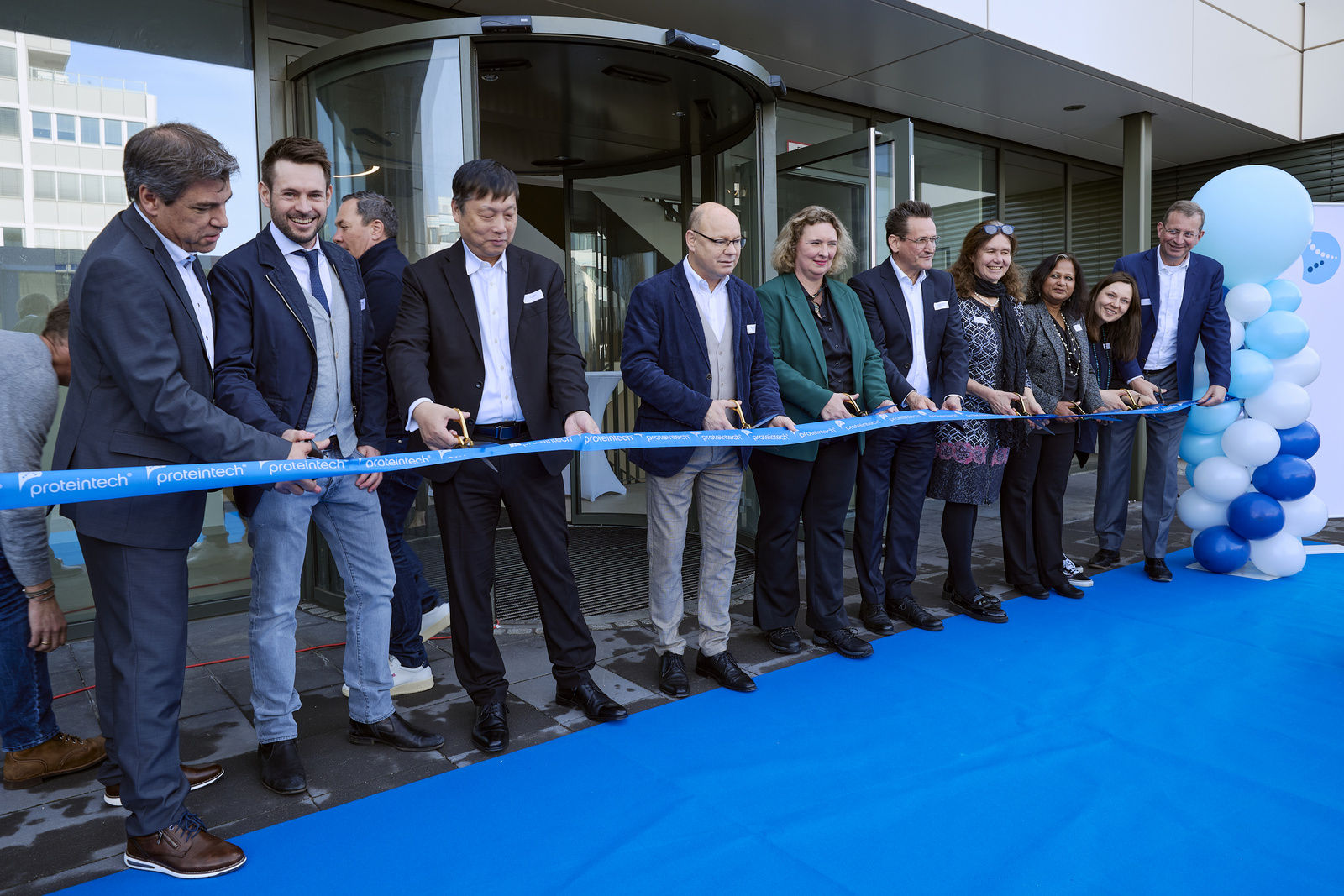- Startseite -
- Digital Bavaria -
- Blog #bytevaria - Navigating the Quantum Science and Technology Landscape in Bavaria: a user’s guide
Navigating the Quantum Science and Technology Landscape in Bavaria: a user’s guide
A revolution is taking place in Quantum Science and Technology (QST) and Bavaria is positioning itself as a leading global centre in the field. With over a billion euros in investment funds available from the state government and the EU, and a concerted joint effort by academia, research institutes and industry, Bavaria is providing fertile ground for ground-breaking QST concepts and top talent.
Munich as the beating heart of the burgeoning Bavarian QST scene
When it comes to QST, Munich has made a name for itself as one of the most active locations in the world. Home to world-class universities, research institutes and experts, the city offers a wealth of experience, competence and excellence in the core areas of QST.
Funding and research at Munich Center for Quantum Science and Technology (MCQST)
Take the Munich Center for Quantum Science and Technology (MCQST) for example. This interdisciplinary cluster of more than 300 scientists and principal investigators is building a world-class QST foundation for addressing scientific and technological questions. The initiative combines the academic strength of two of Germany’s best universities, the Technical University of Munich (TUM) and Ludwig Maximilian University (LMU), with the research expertise of the Max Planck Institute of Quantum Optics and the Walter Meißner Institute. As the third partner, the Deutsches Museum, one of the largest scientific museums in the world, supports the MCQST through scientific advisory and the creation of a public exhibition on quantum physics.
By pooling expertise, an environment is created that nurtures talent and is conducive to the development of early initiatives through educational programmes and funding. MCQST stands out from other international centres in that it unites individual proven competence in all recognized core QST topics within a multidisciplinary field.
Bringing quantum computing to industry: Bavarian Competence Centre for Quantum Security and Data Science (BayQS)
While the use of quantum technology is heating up, application in the real world is still very much in its infancy. That said, the race is on in the commercial field to find ways to tap QST potential and use it practically.
With that in mind, the Bavarian Competence Center for Quantum Security and Data Science (BayQS) was set up in Munich to research the practical use of quantum computing in industry and to develop secure, reliable and efficient quantum computing software. Here, the core competencies of three research institutes of the trailblazing Fraunhofer Society for the Advancement of Applied Research are bundled with the academic expertise of Munich’s TUM and LMU universities and the Leibniz Supercomputing Center (LRZ). The Fraunhofer’s research capabilities are significantly enhanced by access to the IBM Quantum System One—the most powerful quantum computer in Europe.
Building quantum computers in Bavaria in Munich Quantum Valley
Since it was first announced in 2021, the Munich Quantum Valley (MQV) initiative has garnered the support of 40 academic institutions, research institutes and businesses—all with one goal—to make Bavaria a European leader in the research and use of quantum science and technologies.
Part of that ambitious objective is the realization of a Center for Quantum Computing and Quantum Technologies (ZQQ) to foster cooperation with industry toward the development and transfer of new QST technologies, and to build and operate quantum computers. A second pillar of the initiative is the Quantum Technology Park, which will pool research capabilities and provide high-tech infrastructure and resources to start-ups. Scientific qualification and training is the last pillar of MQV, ensuring that the next generation of QST gurus is best prepared.
Going beyond Munich: other key players in the Bavarian Quantum scene

While Munich lies at the heart of Bavarian QST efforts, other centres in the state are advancing this technology and Bavaria’s stake in the field. Further north, at the University of Würzburg , the physical foundations of quantum matter and the application of topological concepts for the realization of future quantum bits are being investigated, while in Augsburg and Regensburg, universities are carrying out research on correlated quantum materials. At the Friedrich-Alexander-University Erlangen-Nuremberg, scientists are examining the characterization of many-particle systems and quantum-assisted machine learning.
Staying around Erlangen, experts at the Fraunhofer Institute for Integrated Systems and Device Technology IISB set up a SiC technology platform in recent years that is unique in Europe. It offers high application potential in the field of quantum sensing and the possible realization of novel qubits. Sister organization, the Fraunhofer Institute for Integrated Circuits IIS delivers broad spectrum expertise in the field of interface technologies, both in the high-frequency range and in DSP-based control architectures and system integration.
Global and Bavarian business champions QST
Businesses in Bavaria are heavily involved in the advancement of QST through funding and hands-on initiatives.
Local enterprises Infineon, kiutra and next nano all produce the building blocks for the acceleration of QST research and hardware development.
BMW, for example, is looking to quantum computing to boost production processes. The automaker champions QST research through initiatives such as the BMW Group Quantum Computing Challenge and an endowed chair in Quantum Algorithms and Applications at the TUM.
European aerospace corporation Airbus, with facilities in several locations in Bavaria, is exploring quantum computing, communication and sensing, in cooperation with topflight experts from academia and industry.
And scientists from Bavaria’s network of big global tech organizations, including IBM, Microsoft and Google, are also working hand-in-hand with Bavarian institutes and universities on projects that advance QST.
Networks and clusters support Bavaria’s QST drive
Bavaria has a reputation as a breeding ground for innovation, thanks in part to well-established and highly effective networks and cluster platforms.
In the QST sphere, the Quantum Business Network (QBN) connects stakeholders from all quantum technology sub-disciplines. As a QBN member, organizations get access to business and collaboration partners, funding and start-up support.
PushQuantum is a collaboration that brings young talent from all disciplines together. It facilitates education and professional development in the quantum domain through workshops, trainings, events and internships.
For staying abreast of QST developments and connecting with a who’s who of the most important QST players, The Bavarian Quantum Computing eXchange is a monthly get-together organized by the Leibniz Supercomputing Centre. At these events, leading scientists and industry players, such as Quandela or kiutra, present new research, technical insights and solutions.
The tip of the QST iceberg
he exciting initiatives presented here are just a snapshot of the vibrant QST world that is developing rapidly throughout Bavaria. The work of all of these players is leading to strides in quantum technology and awakening the interest of overseas QST companies who wish to jump onboard and be a part of this dynamic and innovative scene. IQM Finland, Cambridge Quantum from the UK, Multiverse Computing Spain and EvolutionQ from Canada are just some of the names looking to set up in Bavaria and take advantage of the abundance of expertise, networks and funding to develop their technology.
Are you interested in learning how your business can benefit from the Bavarian QST landscape? Get in touch with me to learn more.

Chicago/Planegg-Martinsried: the US-based Proteintech Group triples the size of its site in Bavaria – with a key focus on research & development, production and logistics

Our ABCs of Funding: Find the most important information about funding!


![[Translate to English:] [Translate to English:]](https://ik.imagekit.io/sgliwi1izsz/_processed_/2/d/csm_Invest_In_Bavaria3569_e56a97cefa.jpg?tr=w-1024 1024w, https://ik.imagekit.io/sgliwi1izsz/_processed_/2/d/csm_Invest_In_Bavaria3569_e56a97cefa.jpg?tr=w-1280 1280w, https://ik.imagekit.io/sgliwi1izsz/_processed_/2/d/csm_Invest_In_Bavaria3569_e56a97cefa.jpg?tr=w-1536 1536w, https://ik.imagekit.io/sgliwi1izsz/_processed_/2/d/csm_Invest_In_Bavaria3569_e56a97cefa.jpg?tr=w-1920 1920w)